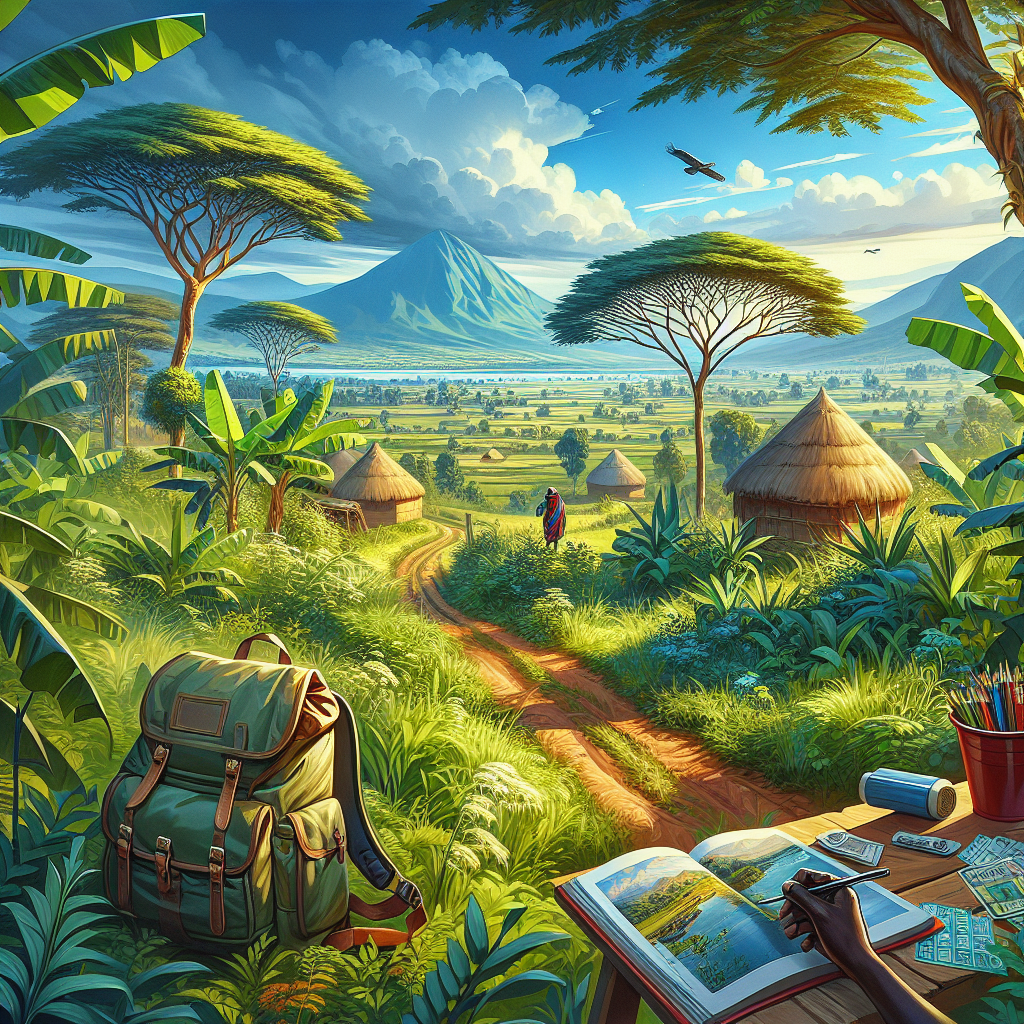Exploring Uganda on a Shoestring: The Ultimate Budget Travel Guide
Uganda, often referred to as the “Pearl of Africa,” is a stunning destination known for its diverse landscapes, rich culture, and abundant wildlife. From the misty mountains that house the majestic gorillas to the tranquil waters of Lake Victoria, Uganda offers an array of experiences for every type of traveler. However, exploring this East African gem doesn’t have to break the bank. With careful planning and smart choices, you can experience the best of Uganda on a shoestring budget. Here’s your ultimate budget travel guide to navigating through this spectacular country without spending a fortune.
Budget Accommodations
The first step in planning a budget trip to Uganda is finding affordable accommodation. Hostels, guesthouses, and budget hotels are available in major towns and tourist spots. Many of these offer basic, clean facilities at a fraction of the cost of luxury lodges. Camping is also a popular and economical option, especially in national parks and along the shores of Lake Victoria. Websites like Booking.com and Airbnb can be great resources for finding budget-friendly stays. Additionally, consider staying with local families or in community guesthouses to immerse yourself in Ugandan culture while keeping costs low.
Affordable Transportation
Transportation within Uganda can vary widely in terms of cost. For the budget-conscious traveler, public transportation is the most economical choice. Boda-bodas (motorbike taxis) are ubiquitous in cities and towns, offering quick and cheap rides. For longer distances, matatus (shared minibuses) and buses are available and provide an authentic Ugandan experience. Be prepared to negotiate fares and travel times, as these can vary. Renting a car can be expensive, but it offers freedom and flexibility, especially for accessing more remote areas. Consider teaming up with fellow travelers to split the cost.
Eating on a Budget
Ugandan cuisine is delicious, diverse, and, most importantly, affordable. Street food and local eateries offer a chance to taste traditional dishes like matooke (steamed plantains), posho (cornmeal), and rolex (a rolled chapati filled with eggs and vegetables) at low prices. Markets are also great places to buy fresh fruits, vegetables, and other ingredients if you prefer to cook your meals. Many budget accommodations provide access to kitchen facilities. Drinking tap water is not recommended in Uganda, but you can save money by treating tap water with purification tablets instead of buying bottled water.
Free and Low-Cost Attractions
Uganda is home to numerous attractions that are free or require a small fee. Explore the vibrant streets of Kampala, the capital city, where you can visit markets, mosques, and the Uganda Museum for a glimpse into the country’s history and culture. Nature lovers can enjoy the stunning scenery and diverse wildlife in Uganda’s national parks. While entrance fees apply, activities like hiking, bird watching, and animal spotting offer incredible value. The Uganda Wildlife Authority sometimes offers discounts on park fees, so it’s worth checking their website or inquiring locally.
Gorilla Trekking on a Budget
Gorilla trekking is one of Uganda’s most sought-after experiences, but it can also be one of the most expensive. To save money, consider visiting during the off-peak season (April, May, and November) when permits are discounted. Additionally, keep an eye out for last-minute permit deals, as unsold permits are sometimes sold at reduced rates. Joining a group trek can also help reduce costs.
Staying Safe and Healthy
Staying safe and healthy is crucial when traveling on a budget. Take precautions against malaria by using mosquito repellent and sleeping under a treated net. Ensure you’re up-to-date on vaccinations, and always have a basic first aid kit on hand. Be mindful of personal safety, especially in crowded areas and when using public transportation. It’s also wise to purchase travel insurance that covers medical expenses and unexpected trip cancellations or interruptions.
Recreating the Experience
For those unable to travel to Uganda but intrigued by its culture and landscapes, there are ways to recreate the experience at home. Engage with Ugandan literature, music, and film to immerse yourself in the country’s rich artistic heritage. Try cooking traditional Ugandan dishes using online recipes and ingredients available from international grocery stores. Additionally, virtual tours and documentaries can provide a visual and educational journey through Uganda’s stunning national parks and vibrant cities.
FAQ
1. Is Uganda safe for solo travelers?
– Uganda is generally safe for solo travelers, but it’s important to take standard safety precautions, stay informed about local news, and avoid traveling alone at night.
2. Do I need a visa to visit Uganda?
– Most travelers need a visa to enter Uganda, which can be obtained upon arrival or online before travel. Check the current visa requirements for your nationality before planning your trip.
3. What is the best time to visit Uganda?
– Uganda can be visited year-round, but the dry seasons (December to February and June to August) are ideal for wildlife viewing and outdoor activities.
4. Can I use credit cards in Uganda?
– Credit cards are accepted in major hotels, restaurants, and some shops in larger cities, but cash is king in most places, especially in rural areas. ATMs are widely available in urban centers.
5. What should I pack for a trip to Uganda?
– Pack light, breathable clothing for the day, warmer layers for the evenings, sturdy walking shoes, a hat, sunscreen, insect repellent, and any necessary medications. Don’t forget your camera and binoculars for wildlife spotting!
Exploring Uganda on a shoestring budget is not only possible but can also be a rewarding way to experience the country’s incredible offerings. With some planning, flexibility, and a sense of adventure, you can enjoy the beauty, culture, and wildlife of Uganda without spending a fortune.
